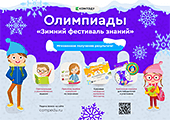| Unit 3. Time | School: | | ||||||
| Date: | Teacher name: | | ||||||
| Grade: 3 | Number present: | absent: | | |||||
| Theme of the lesson: Times of my day 2 | | |||||||
| Learning objectives that this lesson is contributing to | 3.1.8.1 understand short, narratives on a limited range of general and some curricular topics; 3.2.1.1 make basic statements which provide personal information on a limited range of general topics; 3.4.1.1 plan, write and check short sentences with considerable support on a limited range of personal, general and some curricular topics; 3.5.2.1 use cardinal numbers 1 -100 to count | | ||||||
| All learners will be able to:
| | |||||||
| Most learners will be able to:
| | |||||||
| Some learners will be able to:
| | |||||||
| Assessment criteria | Learners have met the learning objective (3.1.8.1 / 3.2. 1.1./3.4.1.1./3.5.2.1) if they can:
| | ||||||
| Value links | Education throughout life, cooperation | | ||||||
| Cross - curricular links | Lesson is connected Science: Astronomy | | ||||||
| ICT skills | Using board, pictures and videos, | | ||||||
| Previous learning | Times of my day 1 | | ||||||
| Plan | | |||||||
| Planned timings | Planned activities | Resources | | |||||
| Beginning 5 mins | Greeting & Objectives Teacher greets Ps Ps greet each other with elbows and say Hello! Салем! Привет! T: Dear pupils, today we have an unusual lesson. Mr. English wanted to see how you get ready to lesson. He prepare some tasks. Are you ready? Checking homework. T. look at this pictures, say all phrases and pupils repeat after me: go home go to school have breakfast have lunch have dinner take a bath wake up wash face and hands watch TV go to bed start school do homework get dressed play soccer clock minute hand hour hand Game: Memory T. quickly show the picture and pupils guess | | | |||||
| Middle 33mins | New material 1) Introduction Numbers 13-19= teen 20-90 = ty twenty thirty forty fifty sixty seventy eighty ninety one hundred 2) Group work Pupils divide into 2 groups (clock-alarm clock) Task 1 T:Ps show their clocks. Ask question to another group What time is it? Group1 Show me please. One o’clock. Four o’clock. Six o’clock. Eight o’clock. Twelve o’clock. Group 2 Show me please. Two o’clock. Three o’clock. Five o’clock. Nine o’clock. Eleven o’clock. Dynamic break-Touch your head Task-2 Strong pupils Play “More words” Weak pupils Match the words with the pictures by inserting the correct number into the circle Task-3 Play "Stand in the right order" Group 1 Every pupil take one picture, stand in the right order and name it Group 2 Every pupil take one picture, stand in the right order and name it Task-4 Group 1 Name daily routines before school Group 2 Name daily routines after school Task-5 –Formative assesment- Differentiation Pair work-assesment What time is it? Draw the time. Write the time in English. Follow the example: It’s one o’clock Strong pupils- six examples Weak pupils- four examples | Table Video material CLOCK Video material DIDACTIC MATERIAL 1 Colour pictures DIDACTIC MATERIAL-2 cards | | |||||
| End 2 mins | Reflection Hometask: words learn by heart -numerals: 1-100 - dialogue What time is it? T: You are super today. Mr.English looked your active work and sent you present in a magic box. Who must to guess the number right in English? 11, 40, 62, 9. Oh, it’s right. Please take your presents The lesson is over. Goodbye. | DIDACTIC MATERIAL-3 | | |||||
| Additional information | | |||||||
| Differentiation – how do you plan to give more support? How do you plan to challenge the more able learners? | Assessment – how are you planning to check learners’ learning? | | ||||||
| Less able students – greater support by means of prompts, visuals or writing difficult words on the board More able students – independent work on definite tasks with little/no support Allow for flexible groupings and cooperative learning, depending on the appropriateness to the task Allow for extra time for students needing it, when appropriate Give extra text or visual support to students needing extra English support Create small learning groups for students needing extra support or enrichment with the co-teacher, when appropriate | through observation | | ||||||
| Reflection Were the lesson objectives/learning objectives realistic? What did the learners learn today? What was the learning atmosphere like? Did my planned differentiation work well? Did I stick to timings? What changes did I make from my plan and why? | | |||||||
| Summary evaluation What two things went really well (consider both teaching and learning)? 1: 2: What two things would have improved the lesson (consider both teaching and learning)? 1: 2: What have I learned from this lesson about the class or individuals that will inform my next lesson? | | |||||||






